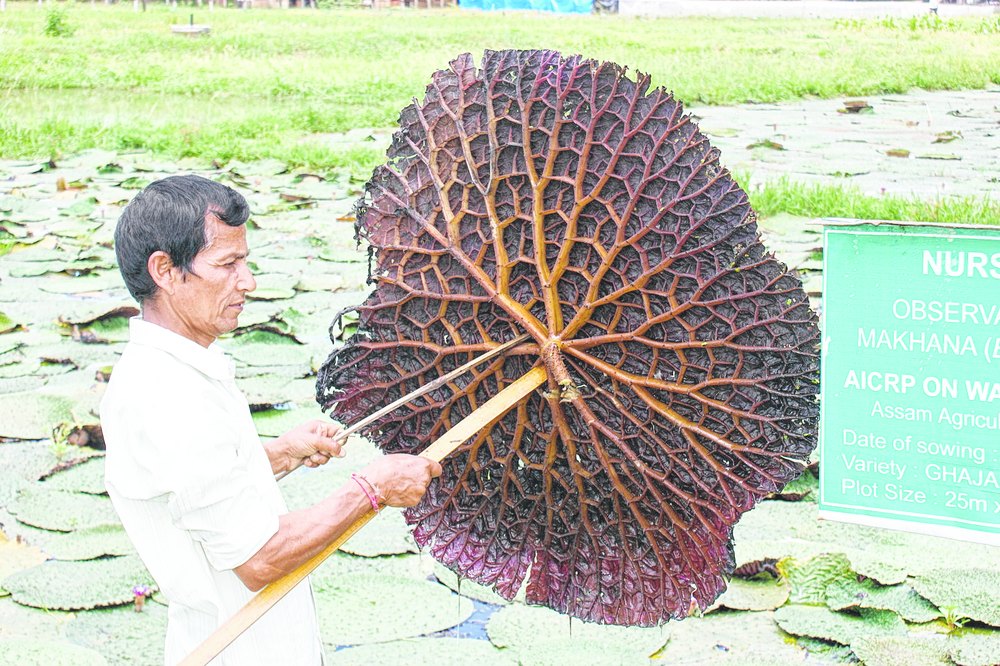
Jorhat, June 25: The indigenous makhana (popped lotus seeds) that is served by international airlines and five-star hotels as a snack, yet has been largely ignored in the region as too laborious to harvest, has found a promoter in Assam Agricultural University.
The university has found an easier way to grow makhana, locally known as nikori, in the paddy fields of Assam so that it can be harvested easily. The indigenous produce sells at Rs 700 per kg.
R.K. Thakuria, the chief scientist of the All India Research Project on Water Management, AAU, and his team have devised a process to grow makhana in lowland paddy fields in the region.
Thakuria said despite the demand for makhana and its high cost, the people here were not bothered to harvest it from the water bodies where it traditionally grows because it is a painstaking process.
"The Assam Agricultural University is popularising it in pockets through its Krishi Vigyan Kendras. The seeds are much in demand in five-star hotels and on international airlines. The state needs to have a policy by which this water herb, Euryale Ferox, can be grown, harvested and its seeds popped to produce the delicious makhana that can be marketed at a huge profit," he said.
"We have devised a means by which the makhana can be grown in paddy fields along with fish farming and it can be taken up from the fields without much labour. A few farmers across the state have been taught this technology," he said.
A kind of machinery is used to pop the seeds that are later fluffed up like popcorn.
Thakuria added that people from Bihar come here to source the raw material and send it to Darbhanga and Madhubani where there is a thriving makhana industry. About 60 tonnes of makhana seeds from Jorhat and Sivasagar districts are sent annually to these places. It is in great demand on days when religious fasts are kept, as it is known as a non-cereal carbohydrate.
"The makhana is rich in minerals, iron, has 9-11 per cent protein and only 0.03 per cent fat. It is used to make delicious snacks and as kheer and also added in dal and vegetable dishes. Very few people know that the stem and flowers can be cooked and eaten as vegetables," Thakuria said.
In Ayurveda, the seeds are considered an aphrodisiac with curative properties for rheumatic and kidney disorders. The makhana has commercial uses too, as in application of starch to Benares silk saris and as an ingredient of livestock feed.










